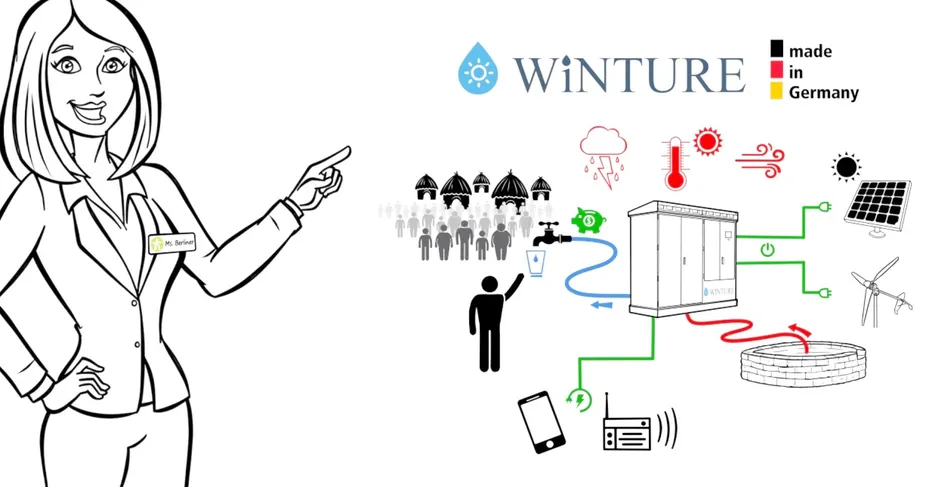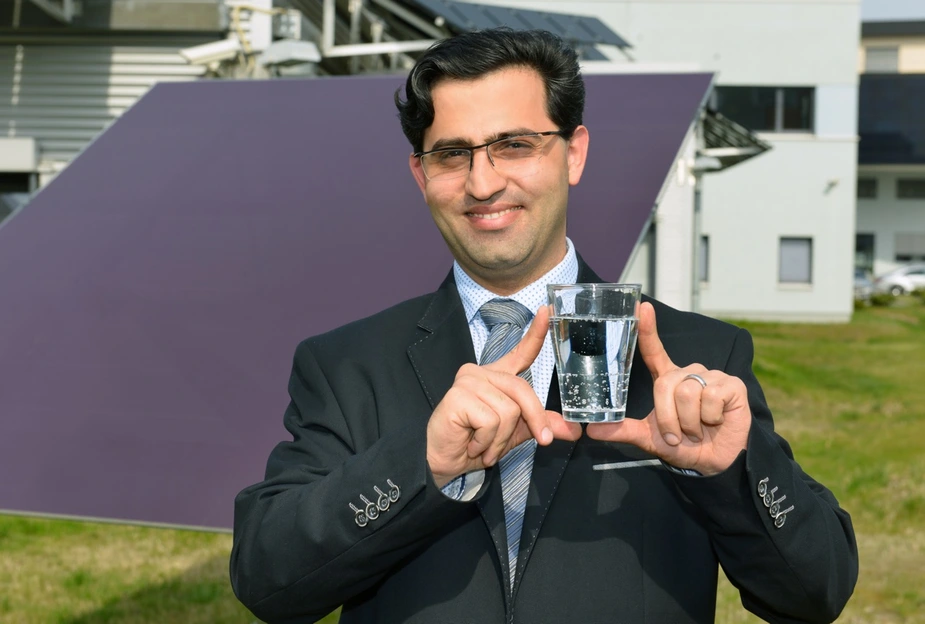This is our part in saving the planet. And fighting poverty.
The Adlershof start-up Boreal Light will bring electricity and water to the poorest regions in the world.
To bring electricity and clean drinking water to rural regions of the Middle East – this is the mission of Hamed Beheshti and his company Boreal Light, founded in 2013. For that, he relies on the power of sun, wind, and small-scale facilities which desalinate sea water, treat drinking water, and produce electricity according to local demand.
This is how it works. Watch the Video on Vimeo.
“This has huge potential,” Beheshti is sure. Born in Iran, the 33-year-old studied regenerative energies at the American University of Beirut at the beginning of this century.
He turned from theory to practice when his car broke down. It happened while travelling through the rather volatile border region between Lebanon and Israel with a friend – no light or electricity as far as the eye could see. “This is the reality of many in the world’s rural regions. Light is essential, not only as the opposite of darkness, but also for health and security,” says Beheshti. This is how he got to start his first wind and solar energy projects in the region. “Because this where people need it the most!”
He first visited Germany through an UNEP scholarship in 2008. He was part of a programme on renewable energies at the TU Dresden. He liked it so much that he returned in 2010 – this time for writing his PhD at the Environmental Policy Research Centre (FFU) of the Free University Berlin. Being an entrepreneur, he went straight back to business as soon as he finished.
He founded his company Boreal Light with a friend who is a mechanical engineer. The name is of course a reference to the aurora borealis, the Northern Lights he was so fascinated with when he visited Iceland. “Our aim was to build robust, affordable machines ‘made in Berlin’ - German quality.” Moving to the Centre for Photovoltaics (ZPV) in Adlershof was a conscious decision. One is surrounded by colleagues from the same field and can exchange information and work together. Moreover, the location offers enough space to set up manufacturing in the adjacent rooms. If business stays good, three new jobs will be created soon.
If you look around Hamed Beheshti’s office, you can catch a glimpse of the ultraviolet filters on his desk which will be built into facilities for treating drinking water someday. The way it works is: “we develop facilities which are assembled from readymade components.” Boreal Light works with partners that take care of the technical tasks the company can’t take on itself. These partners include freelance engineers and also big companies such as Siemens who are responsible for running the water treatment process.
Boreal Light recently set up a partnership with the service provider MD Wind from Luxembourg. After the signing of the nuclear deal with Iran earlier this year, the two companies immediately founded MD Wind Iran. From their headquarters in Teheran, their goal is to provide wind power services with European quality to the Middle East. This task will be facilitated by six young Iranian engineers who will spend three months in summer gaining additional qualifications in Germany and France.
Beyond the Middle East, Beheshti also sees Central Asia and South America as attractive markets for wind power. He recently gained an Indian investor who now holds 30% of the company shares. South America and Sub-Saharan Africa are important target markets for solar powered water treatment. He currently runs a project in Tanzania which produces liquid hydrogen as a byproduct to serve as fuel for private households. “One doesn’t need vast amounts,” says Behesti. “It has to be enough to supply only one neighborhood. This will give people so much more than just technology. We provide their neighbourhood with a new heart.”
By Dr. Uta Deffke for Adlershof Journal
Link: www.boreallight.com

